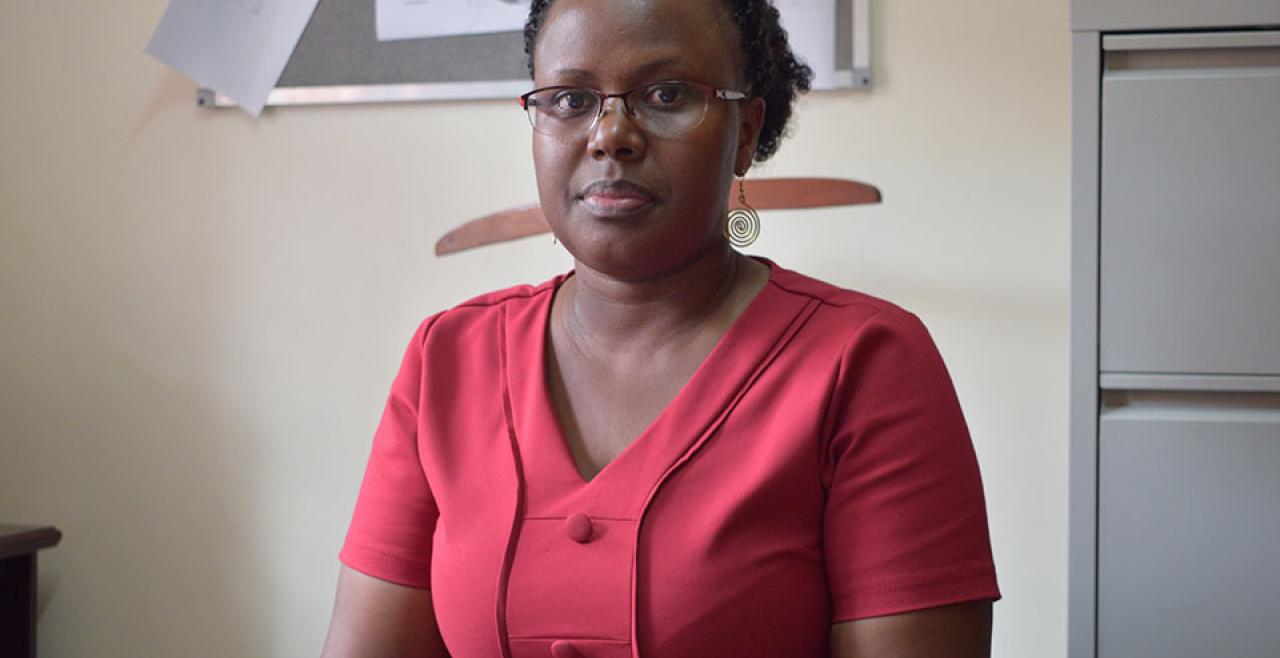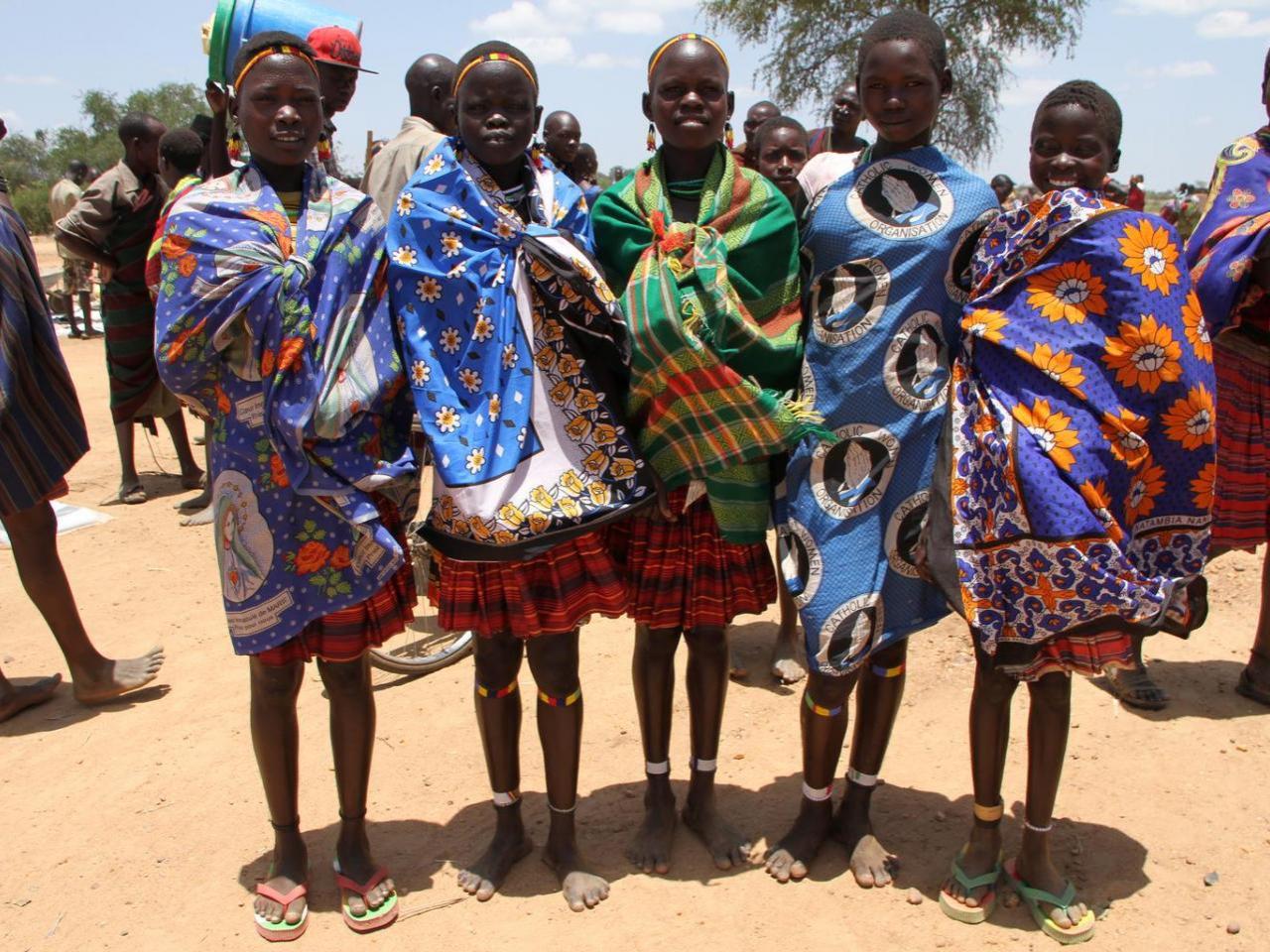From awareness-raising to action, how trained paralegals in Uganda are stopping FGM

Christine Awori is Chief Executive Officer and Head of Legal Aid and Pro-bono Services for the Uganda Law Society (ULS), which established a satellite clinic in Amudat District in northeastern Uganda in 2019, with support from UN Women under the Spotlight Initiative. The organization works on awareness-raising, legal and referral services, and is working to secure partnerships with local radio stations for media campaigns.
How are you working to prevent Female Genital Mutilation (FGM)?
Uganda Law Society in Amudat has run outreach, media campaigns and mobile legal aid clinics in communities, specifically targeting women and girls experiencing violence, including those [at risk] of FGM, to raise awareness about human rights and what the law says about FGM. The clinics aim to enhance access to quality essential legal aid and referral services for women and girls who experience violence and promote their sexual and reproductive health rights. We encourage women and girls to reject the practice of FGM and report those performing it to the authorities. We also promote enforcement of the law on FGM.
What laws exist in Uganda to protect girls from FGM?
Uganda’s 1995 Constitution protects women and their rights under Article 33 by specifically prohibiting “Laws, cultures, customs or traditions which are against the dignity, welfare or interest of women or which undermine their status.” Further, Article 44 states that no person shall be subjected to any form of “torture and cruel, inhuman or degrading treatment”. The main law criminalizing FGM in Uganda is the Prohibition of Female Genital Mutilation Act 2010; however, implementation remains weak mainly because ofthe lack of public awareness about the law and limited financial and technical resource allocation by government to enforce the law.
Can you give an example of how increasing legal awareness has made a difference?
Our interventions include training community-based paralegals, who are front-line responders, on legal and human rights issues and referral services. In December 2019, Paulina, one of our trained community-based paralegals based in Karita village in Amudat District, approached a known perpetrator of FGM and talked her out of the practice in which she was active for over 20 years.
What role do men play in ending FGM?
FGM is done to control women’s sexuality and some men demand to marry only those women who have been cut. If men understand the consequences of FGM and stand up against the practice, they have the power to end it. Men constitute half of the world’s population and as fathers, brothers, clan leaders, religious leaders and politicians, they can choose to end FGM.
As activists, what does the International Day of Zero Tolerance for FGM mean to you?
It rejuvenates all efforts geared towards ending FGM. It recognizes the efforts of activists, victims and survivors and the roles they have played to end FGM. It reinforces that our efforts to address this form of violence are important and recognized. It urges various stakeholders to share experiences, lessons learned and challenges while fighting this vice and channels recommendations on how to move closer to zero tolerance. The International Day of Zero Tolerance for FGM reminds us that we are not alone in this work and that we need to coordinate [among each other] for a stronger movement against FGM.
Original article published on UN Women

